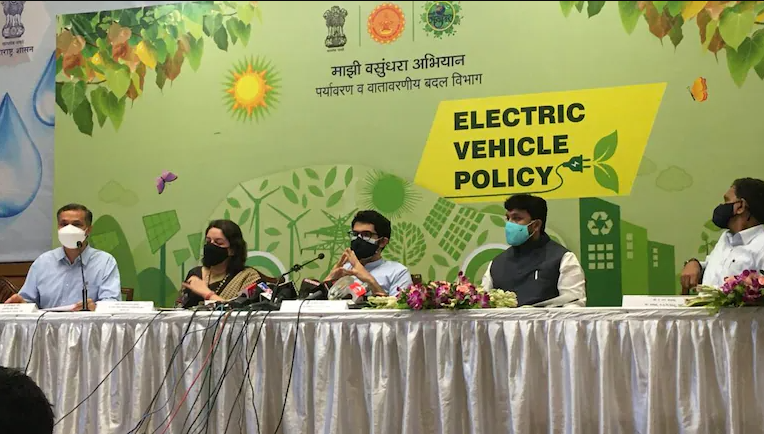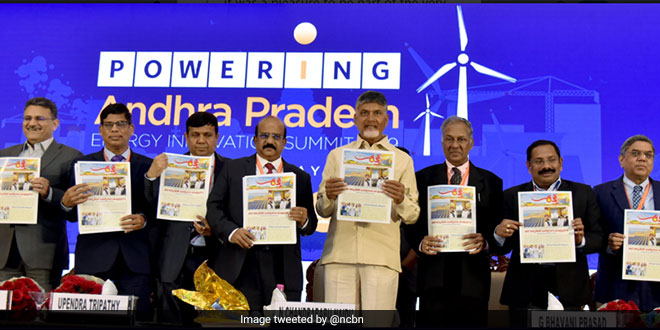Maharashtra and Goa has announced huge subsidies as well as pans for electric vehicle infrastructure while Andhra Pradesh plans to procure 25,00 electric two-wheelers for their government employees.
|
Maharashtra state government plans to make 10% of the vehicles or 3,00,000 vehicles per year into EV's till 31st March 2025. For this the government has announced a ₹930 crore policy and will exempt all EV's from road tax and registration charges.
Electric 2-wheelers are going get a discount of ₹5,000 per kWh and also an early bird incentive of upto ₹15,000 is applicable on buying a two-wheeler before 31 December, 2021. For electric 4-wheelers discount remains the same at ₹5,000 per kWh but only cars with battery packs above 30kWh can avail it. There is also an early bird incentive of ₹1 lakh for those who buy an electric 4-wheeler before 31st Dec 2021. Focus on Infrastructure The state also plans to develop a comprehensive charging network across the state, and is targeting setting up around 2,500 charging stations in seven cities in the next four years. 1,500 of those are to be set up in the Greater Mumbai region; 500 in Pune, 150 each in Nagpur and Nashik, 75 in Aurangabad, 30 in Amravati and 20 in Solapur. The establishment of these stations will cover four major highways – Mumbai-Pune, Mumbai-Nashik, Mumbai-Nagpur and Pune-Nashik. Those setting up the first 15,000 slow chargers will be eligible for an incentive of up to ₹10,000 per charger, and those establishing the first 500 fast chargers will be eligible for a subsidy of up to ₹5 lakh per charger. Speeding up Adoption of EV's The EV policy mentions faster registration of EV's, including EV fleets owned by aggregators, last mile delivery providers, logistics players, etc. The policy will encourage fleet aggregators to operate electric vehicles, as per the Motor Vehicle Aggregator Guideline 2020 issued by Ministry of Road Transport and Highways. For EV Manufacturers The EV Policy documents says that "all the benefits under 'D+' category of mega projects will be provided to these industries irrespective of location of manufacturing unit in the state. This incentive will be applicable from the date of notification of policy and will be disbursed through the Industries, Energy and Labour Department”. Meanwhile the state of Goa and Andhra Pradesh also have plans for promoting mass EV adoptions in their states. Goa will offer subsidies to 11,000 electric vehicles every year for the next five years and the amount of total subsidies offered annually will be capped at ₹25 crore. The subsidy will be disbursed on first come basis, in a single instalment on 100% purchase of vehicle, on completion of documents. On the other hand, New & Renewable Energy Development Corporation of Andhra Pradesh (NREDCAP) has signed an agreement with Convergence Energy Services Limited (CESL), a wholly-owned subsidiary of Energy Efficiency Services Limited(EESL) to procure 25,000 electric two-wheelers for the state. These electric vehicles are provided to Andhra Pradesh’s state government employees. NREDCAP is the agency responsible for implementing the state’s electric and battery-operated vehicle vision. CESL and NREDCAP will work together to deploy electric vehicles and develop charging infrastructure in the state. |
|
PluginIndia's Take
The past experience with FAME subsidies have not been too exciting. What is important is transparency about the conditions for the subsidy - and the time frames. The good part is that most states are talking of doing a direct transfer of subsidy to the end user. Both Maharashtra and AP are talking of the governments buying EVs. All IAS officers and ministers should be compulsorily made to travel in EV's so that policy makers become more aware of the plus points and the infrastructure required for EVs. Policy as much as subsidy can make a huge difference in EV adoption.
The past experience with FAME subsidies have not been too exciting. What is important is transparency about the conditions for the subsidy - and the time frames. The good part is that most states are talking of doing a direct transfer of subsidy to the end user. Both Maharashtra and AP are talking of the governments buying EVs. All IAS officers and ministers should be compulsorily made to travel in EV's so that policy makers become more aware of the plus points and the infrastructure required for EVs. Policy as much as subsidy can make a huge difference in EV adoption.
Subscribe to PluginIndia on YouTube to follow the Indian EV Industry and EV Community. Also subscribe to our podcast.


